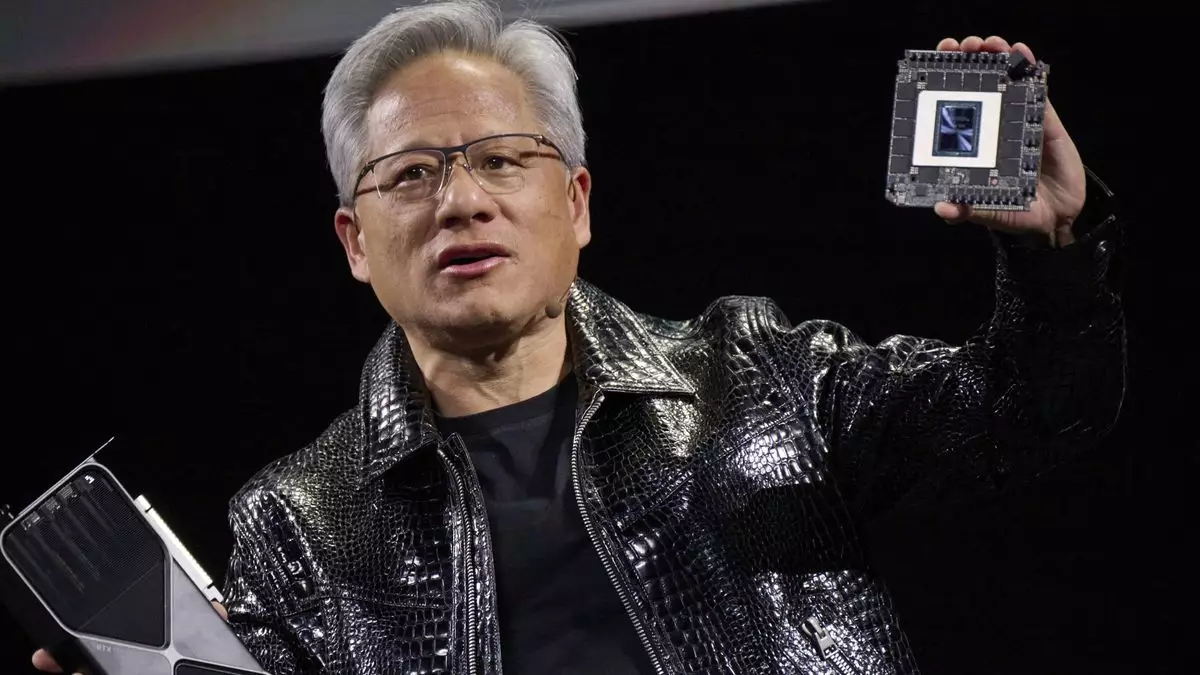Nvidia’s pursuit of dominance in the graphics processing unit (GPU) landscape has recently been marred by concerns regarding the performance and reliability of its new Blackwell architecture. This series of AI-focused GPUs, intended to elevate capabilities for major clients like Microsoft, Amazon, Google, and Meta, has encountered allegations of overheating. Such issues have prompted these tech giants to reconsider their orders, turning their eyes back to Nvidia’s previous Hopper series. This unfolding situation raises questions not only about Nvidia’s future in AI computing but also about the implications for its gaming GPUs, including the newly announced RTX 50 series.
Reports suggest that several of Nvidia’s largest customers have postponed or scaled down their orders for Blackwell GPUs due to overheating concerns. These allegations are not merely speculative; they’ve been documented over a period of months, highlighting a pattern that Nvidia must address urgently. The Information, which first broke these stories, indicates a history of design flaws leading to significant yield issues for Blackwell units. The remarks from Jensen Huang, Nvidia’s CEO, affirm that these problems stemmed from the design itself, indicating potential systemic flaws that may not simply translate across product lines.
Despite the palpable anxiety surrounding the Blackwell series, it’s crucial to differentiate between the AI chips meant for cloud computing and the gaming GPUs that cater to a different audience and workload. The architecture that underpins both product lines may share similarities, yet their operational environments are drastically different—gaming GPUs primarily handle graphics rendering rather than AI training and inferencing. This distinction could enable Nvidia to mitigate the overheating issues in its gaming segment effectively.
The ongoing adjustments to the Blackwell architecture reflect Nvidia’s commitment to addressing the overheating claims seriously. Reportedly, Nvidia has undertaken multiple redesigns of liquid-cooled GPU racks in an attempt to resolve the thermal management issues plaguing the Blackwell lineup. Such proactive measures demonstrate a willingness to adapt and ensure reliability in their products, but they also indicate the existence of significant inherent problems that could tarnish Nvidia’s reputation if unresolved.
Amidst the chaos surrounding the Blackwell series, the newly unveiled RTX 50 family aims to redefine expectations for gaming performance. Nvidia appears confident that the issues with Blackwell will not impact the RTX 50 GPUs. While these new models are indeed based on the same architecture, optimizations in layout, functional units, and cooling solutions for gaming applications may mitigate the risks associated with overheating. Furthermore, Nvidia’s decision to utilize the cutting-edge TSMC N4 silicon technology indicates a commitment to maximizing both performance and thermal efficiency.
As consumers await the new RTX 50 series, the specter of Blackwell’s troubles looms large. Enthusiasts are understandably anxious about potential performance bottlenecks due to shared architecture. Yet, it’s vital for consumers to remain informed and assess the potential for Nvidia to rectify these issues before launch. While news about overstressed AI GPUs can dampen expectations momentarily, the overall perception of Nvidia’s reputation hinges on their ability to deliver reliable products across all segments.
The scrutiny surrounding Nvidia’s Blackwell architecture sets a complicated stage for the RTX 50 gaming GPUs. While there are valid concerns regarding overheating and design flaws, it is essential to consider the nuances of how different GPUs operate under varying conditions. Nvidia’s history of innovation suggests that the company may successfully navigate these challenges. It remains to be seen if the RTX 50 series can meet its projected performance benchmarks without carrying over the overheating problems from its Blackwell predecessors. The gaming community is certainly watching, hoping for a reaffirmation of Nvidia’s status as the leading authority in the GPU market.

